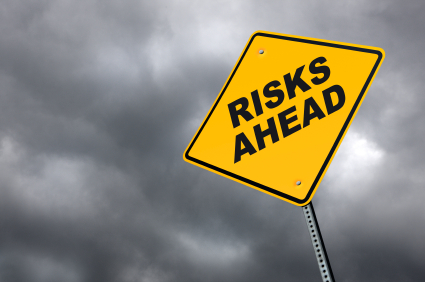Former Warrant singer Jani Lane was found dead last night in a Comfort Inn in L.A. at age 47. It’s unclear at this point what the cause is, but his death is making me re-think a few things about my attitude.
Mood music:
http://youtu.be/cSdvxocgbAg
I remember when Warrant came out in the late 1980s. I couldn’t stand them. Sure, they sounded good. Crunchy guitar sound. Good vocals. But it all sounded so fake. I thought “Cherry Pie” was the dumbest song I’d ever heard. Again, the sound was good. But the lyrics were stupid and the feel wasn’t real to me. Admittedly, though, I liked “Uncle Tom’s Cabin” and hated the fact that I liked it.
The band also came out at a point in the late 80s when every band was starting to sound and look alike. I decided I was too cool for it all.
I did what a lot of other metal heads did in the early 90s when the metal scene imploded under the weight of all the copycats: I started listening to so-called grunge: Nirvana, Soundgarden, Alice in Chains. My own band, Skeptic Slang, sounded a lot like the grunge we were listening to, with hints of old-school metal here and there.
I still listen to all those bands, but in recent years I’ve returned to my 80s hard rock roots. Warrant has not been part of my playlist.
I’ve seen interviews with Jani Lane over the years where he lamented writing “Cherry Pie” and took a crack at reality TV. He looked and sounded like a troubled man in those clips, and he did indeed wrestle some demons. He was recently sentenced to serve 120 days in jail after pleading no contest to a 2010 DUI charge — his second in two years.
As for his death, no one really knows what happened. We can speculate, but I won’t. I’ll just wait for the follow-up news reports.
Instead, I’m examining my own reaction to his death and what it says about me and human nature in general.
When I first saw the news an hour ago, I felt bad. I went on Youtube and started playing Warrant songs. I was thinking that they sounded much better with age, then I had a “what the fuck?” moment.
Here I am, thinking these songs sound pretty good. And I’m sneering at all the nasty comments people make about being glad he’s dead. Then I catch myself, because in my self-righteous anger I quickly remember that I used to say things about how bands like this sucked and needed to be destroyed. I’m pretty sure I’ve joked from time to time about how it would be nice for bands like this to go down in a flaming plane wreck.
That’s not nice. It’s certainly not a good fit with my Christian beliefs. But there it is.
It’s funny how we get when musicians and celebrities we don’t think much of die. I found it amusing that people were tearing Michael Jackson down in the last decade of his life because of his alleged pedophilia, yet, when he died, everyone magically forgot that stuff and acted as if Jesus Himself had been crucified again.
When Motley Crue bassist Nikki Sixx opined about Jackson being a “child rapist” and I wrote about it, the comments section of this blog descended into all kinds of name calling. Most of it came from people who love Michael Jackson’s music.
More then one person noted that Jackson was never found guilty of such things. When he was still alive, people were not defending him so ardently.
We do this stuff a lot when famous, tarnished figures die. We play up the good stuff they did and conveniently forget the bad stuff. Or, at least, we minimize the latter as some unfortunate little interlude between the acts of greatness. Richard Nixon comes to mind.
And now we’re remembering the good stuff Jani Lane contributed to the world in his 47 years.
You know what? That’s how it should be.
Everyone deserves a shot at redemption, and making music I personally didn’t care for doesn’t mean there was something wrong with Jani Lane. He wrote the music he wanted to write. It spoke to him, and it spoke to others, even if I wasn’t one of them.
The band’s success in the late 80s and early 90s happened because the music made a lot of kids happy, just as Motley Crue’s “Shout At The Devil” and Def Leppard’s “Pyromania” gave me moments of happiness during a troubled youth.
We all have our tastes and opinions. We all tend to think our opinions are better than everyone else’s.
That’s part of the human condition. We don’t just do it to celebrities. We do it to everyone. We are judgmental savages sometimes.
Rest in Peace, Jani Lane. I apologize for any of the bad stuff I said about you over the years.















